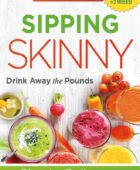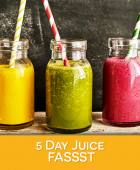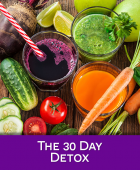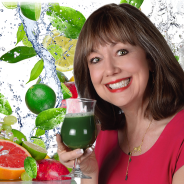Juices & Foods that Help Lower Blood Pressure
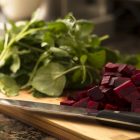
Lower Blood Pressure With These Juices & Foods
About 75 million American adults (29%) have high blood pressure, which is 1 in every 3 American adults. Anyone, including children, can develop high blood pressure. It greatly increases the risk for heart disease and stroke. Simply taking medication is not the long-term answer. There are side effects such as a dry cough, dizziness or an upset stomach. The answer is getting to the root of the problem, which is usually stress and anxiety. Using natural remedies with no side effects can be very helpful.
Read MoreDo You Want to Be Healed?
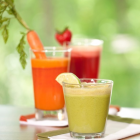
Do You Want to Be Healed?
There are many reasons why we get sick. Harmful emotions caused by hurtful situations can cause us to end up in a state of dis-ease. Stress is a “killer” for sue. But poor diet, toxins, lack of exercise, and lack of nutrients are among the top causes of disease.
At least one major study, conducted in the 1990s, found that 40% and possibly as high as 47% of deaths in the United States were caused by behavior patterns (diet, lack of exercise, tobacco, alcohol, etc.) meaning they could have been prevented.1 “At least 70 percent of health care spending is related to lifestyle,” The Milken Institute Review reported last year. “While genes cause or contribute to some disease, our excess weight, tobacco use and poor exercise habits are far more damaging,” the publication noted.2 The American Journal of Medicine reported in 2007 that more than 62% of all bankruptcies in the United States stemmed directly from medical debts or the loss of income due to illness.3
If you want to turn your health, your energy, your life around, it’s time to do something different. Albert Einstein said, ”Insanity is doing the same thing over and over again and expecting different results.” Your life is priceless! What are you doing to protect your health or turn your health around?
Juicing, cleansing your body, learning new ways of eating, exercising, and de-stressing are all important components of healing and a healthy lifestyle.
Notes:
- Poor Diets, Little Exercise Leading Cause of Preventable Illness and Death – Robert Wood Johnson Foundation (June 2004).
- Health Reform – The Milken Institute (First Quarter 2010) By Michael Milken.
- Medical Bankruptcy in the United States, 2007: Results of a National Study – By David U. Himmelstein, MD; Deborah Thorne, PhD; Elizabeth Warren, JD; and Steffie Woolhandler, MD, MPH.
Beet Juice Lowers Blood Pressure
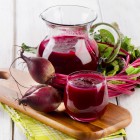
Beet Juice Lowers Blood Pressure
This week Patrick shared his good news with me. “I have been juicing constantly since the beginning of the year (finally!!!). I am seeing great health benefits, especially a drop of the blood pressure without taking my medication, and a clearer mind.”
Well Patrick isn’t alone. A resent study (Medical News Today, 2015) conducted at Queen Mary University of London, and funded by the British Heart Foundation. showed that one cup of beet juice a day can help lower blood pressure in patients with hypertension, even those whose blood pressure was not controlled by medication. Published in the journal Hypertension, the scientists examined the impact consuming nitrate has on blood pressure. In the 4-week study, patients drinking the juice in the active group (whose beetroot juice contained inorganic nitrate) experienced a reduction in blood pressure of 8/4 mmHg (millimeters of mercury).
The patients in this juice group experienced a 20 percent improvement in blood vessel dilation capacity. Artery stiffness was also reduced by about 10 percent. Various studies also show these changes are associated with a reduced risk of heart disease.
In contrast, there were “no changes to blood pressure, blood vessel function or artery stiffness in the placebo group (whose beetroot juice did not contain nitrate) during the period of the study.”1
Vegetables rich in nitrates include:
- beetroot
- lettuce
- cabbage
- fennel
Vegetables take in nitrate through their little roots that reach down into the soil where nitrates are naturally found. Nitrates are important to the growth of vegetables. The researchers explained that when nitrates are converted to a gas called nitric oxide, it has a relaxing effect on blood vessels and may help lower blood pressure.2
Are you surprised that this study shows nitrates as being beneficial? If yes, I’m with you. I thought I’d do some research before I advised you about this new beet juice study. Here’s what I found: A study that originally connected nitrates with cancer risk and caused the scare in the first place has since been discredited after being subjected to peer review. There have been major reviews of the scientific literature that found no link between nitrates or nitrites and human cancers, or even evidence to suggest that they may be carcinogenic. Further research suggests that nitrates and nitrites may not only be harmless, they may be beneficial, especially for immunity, heart health, and hypertension.3
Notes
1 http://www.medicalnewstoday.com/articles/288229.php
2 http://www.medicalnewstoday.com/articles/259113.php Amrita Ahluwalia, Ph.D., lead author of the study and a professor of vascular pharmacology at The Barts and The London Medical School in London, reported to Medical Xpress
3 http://chriskresser.com/the-nitrate-and-nitrite-myth-another-reason-not-to-fear-bacon
Read More
Cinnamon Lowers Blood Sugar
Cinnamon Lowers Blood Sugar
With the holidays, comes the fragrance and delight of cinnamon. From sweet potatoes to pumpkin pie, cinnamon shows up throughout the holiday season. But did you know that it has remarkable health advantages? It helps to balance blood sugar by stimulating insulin receptors, giving them a stronger affinity for the blood-sugar lowering hormone. In response, the body needs to produce less insulin in order to achieve blood sugar balance. This creates less pancreatic stress, improved metabolic rate, and decreased inflammation. Cinnamon has three major oils that contain active components —cinnamaldehyde, cinnamyl acetate and cinnamyl alcohol. Cinnamaldehyde has been shown to block the release of inflammatory agents on the cell membrane. And the scent has even been shown to improve attention span and memory. If you have diabetes, Ceylon cinnamon may offer the best results.
Recipe for Today
 Cinnamon Water
Cinnamon Water
This holiday season, try an earthy and sophisticated Cinnamon Infused Water that offers delicate sweetness and spice. It’s delicious alone or with dinner, and as a festive alternative to plain water at holiday gatherings.
Making cinnamon water requires just cinnamon and water. One method is to simply drop a cinnamon stick in a pitcher of water and chill overnight. The water will become infused with subtle flavor. But if you want the blush of color, simmer the cinnamon in a pot of water on the stove with a ratio of 1 cinnamon stick to 1 cup of water. (And your kitchen will smell amazing!) Cool the liquid and use it as a concentrate to mix with cold water and ice or with sparkling water.
Read More
Celery Lowers Blood Pressure and Relieves Joint Pain
Celery Lowers Blood Pressure and Relieves Joint Pain
Celery is a good source of vitamin C, beta-carotene, sodium, and manganese—phenolic antioxidants that have been shown to reduce inflammation. If you are suffering from joint pains, lung infections, asthma, or acne, eating and juicing more celery will bring much-needed relief. It also helps you calm down and relieves stress. The minerals in celery, especially magnesium, soothe the nervous system. If you enjoy celery in the evening, you may sleep better. Also, celery juice may lower your blood pressure. A twenty-year animal study found that 3-n-butylphthalide, an extract found in celery, lowers blood pressure and cholesterol levels. The daily dose needed to gain this benefit appeared to be about four stalks, which explains why one might want to get it through juice.
Read MoreIt’s Not A Weed To Your Body
It’s Not A Weed To Your Body
The lowly little dandelion is something most homeowners detest. Popping up in our beautiful green lawn, we go after them with a vengeance. Hopefully, no one is spraying them with chemicals. But maybe we should be doing something more with them than throwing them away. My grandmother picked them and made tea by boiling them. I juice them—not for the taste, but for their health benefits. All parts for the dandelion have a bitter bite. This taste comes from their flavonoids that give them their blood purifying properties. These compounds work in the digestive system to increase the flow of urine. Unlike other diuretics, dandelion contains vast amounts of potassium that restore the mineral balance in the kidneys as toxins are flushed out. Healers also count on dandelion’s highly volatile and bitter constituents in the root to flush toxins from the system.
Dandelion is in most liver tonics due to its oils, the bitter resins that stimulate the digestive system. The fiber in the whole plant is described as viscous because of its astonishing ability to absorb and transport toxins from the bowels out of the body, balance intestinal flora, and soothe the digestive tract in the process.
Conditions Helped By Dandelion
Detoxification is the word most people think of with dandelion. There are few detox formulas on the market that don’t use of this plant. Dandelion can be your best friend when recovering from illnesses. It can revive you after a flu or a cold have taken their toll. People with liver conditions, skin conditions, changes in hormones such as menopause or adolescence and arthritis (including gout) can benefit greatly from dandelion.
Dandelion is also useful for high blood pressure, high cholesterol, and unstable blood sugar levels. This plant is full of bitter constituents that are not only excellent for stimulating the digestive system but offer anti-inflammatory benefits. Dandelion is also helpful as a lactation stimulator.
Liver Cleansing Cocktail
1 handful dandelion greens
3-4 carrots, scrubbed well, tops removed, ends trimmed
1/2 cucumber, peeled
1/2 lemon, peeled
Bunch up dandelion greens. Cut produce to fit your juicer’s feed tube. Tuck the greens in feed tube and push through with the carrot. Juice remaining ingredients, finishing with a carrot. Stir the juice, pour into a glass, and drink as soon as possible.
Serves 1
Note: Dandelion juice is a traditional remedy for cleansing the liver.
From Juicing, Fasting, and Detoxing for Life
Read MoreHibiscus Lowers Blood Pressure

Hibiscus Lowers Blood Pressure
Hibiscus iced tea is a refreshing summer pick-me-up that is naturally sweet so you don’t need to add any sweetener. It has no caffeine, but it offers numerous health benefits. A review of the research on Hibiscus shows that an extract of this flower lowers blood pressure in animals (Fitoterapia, March, 2013). In humans, daily hibiscus tea consumption has been shown to lower blood pressure (Journal of Nutrition, Feb., 2010). It works by blocking the same enzyme (ACE) as drugs like captopril or lisinopril. Other studies show that it fights inflammation. Stay cool and refreshed on these hot summer days with delicious hibiscus tea. Try raspberry-hibsicus or make the recipe below.
Recipe
Hibiscus Power Iced Tea
Chopped hibiscus flowers (order Amazon) or 5 hibiscus herbal tea bags*
12 mint leaves (optional)
Juice of 1 lime (optional)
2 quarts purified water
Steep hibiscus tea or flowers in water. I put it all in the refrigerator. In about an hour you have iced tea.
*I recommend Hibiscus tea or “Back on Tract”—hibiscus and cranberry—both by Traditional Medicinals (visit their website at www.traditionalmedicinals.com).
From The Juice Lady’s Anti-Inflammation Diet
Read MoreHibiscus Tea Lowers Blood Pressure

Hibiscus Tea Lowers Blood Pressure
Studies have shown that drinking as little as 2 to 3 cups of hibiscus tea from the Hibiscus sabdariffa flower each day can lower your BP levels. It’s as effective as some anti-hypertensive prescription medications without the potential side effects. It’s also been shown in studies to lower inflammation. And it’s known to contain high levels of antioxidants, which help to rid our bodies of free radicals (destructive molecules that can damage our cells and DNA) and protect us against chronic disease, such as heart disease, rheumatoid arthritis, diabetes, and cancer.
Hibiscus Power Iced Tea
Chopped hibiscus flowers (order Amazon) or 5 hibiscus herbal tea bags*
12 mint leaves (optional)
Juice of 1 lime (optional)
2 quarts purified water
Steep hibiscus tea or flowers in water. I put it all in the refrigerator. In about an hour you have iced tea.
*I recommend Hibiscus tea or “Back on Tract”—hibiscus and cranberry—both by Traditional Medicinals (visit their website at www.traditionalmedicinals.com).
From The Juice Lady’s Anti-Inflammation Diet
Read More



